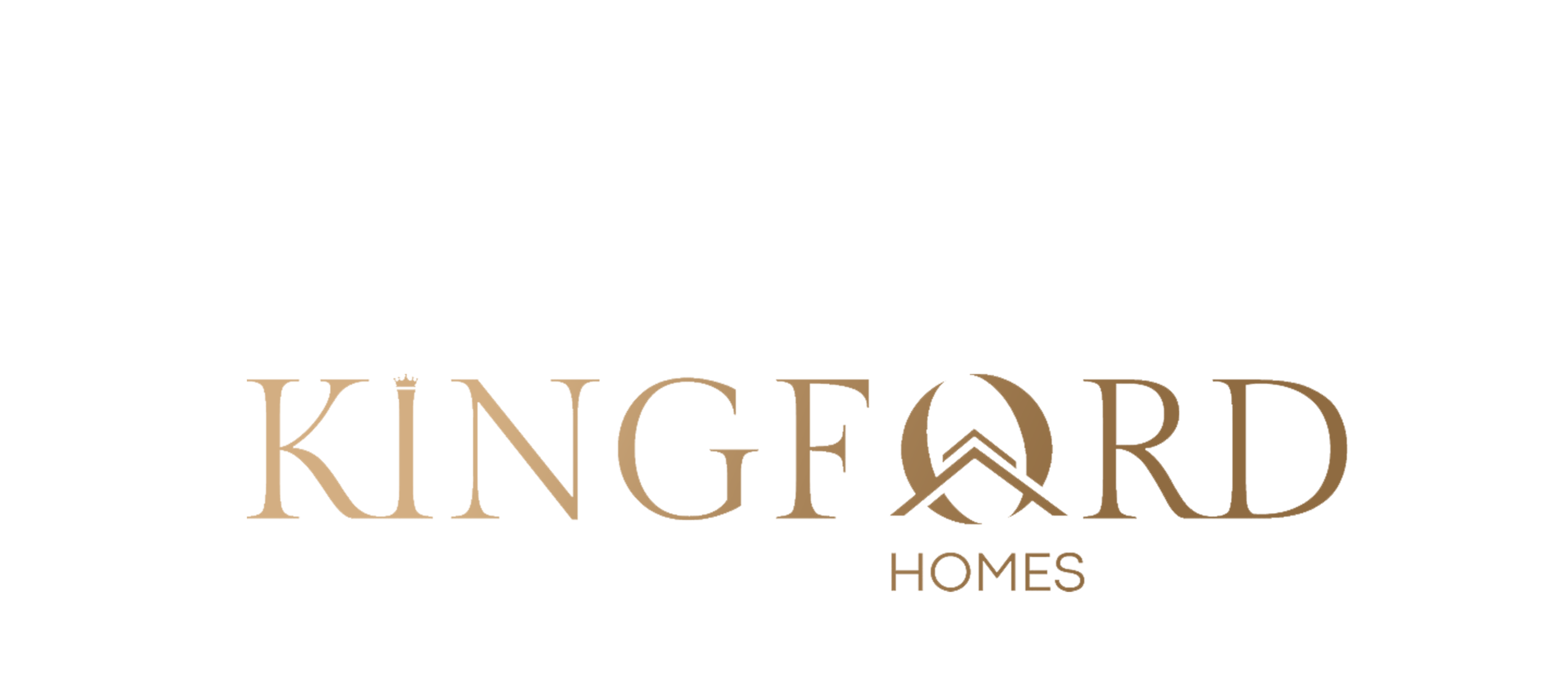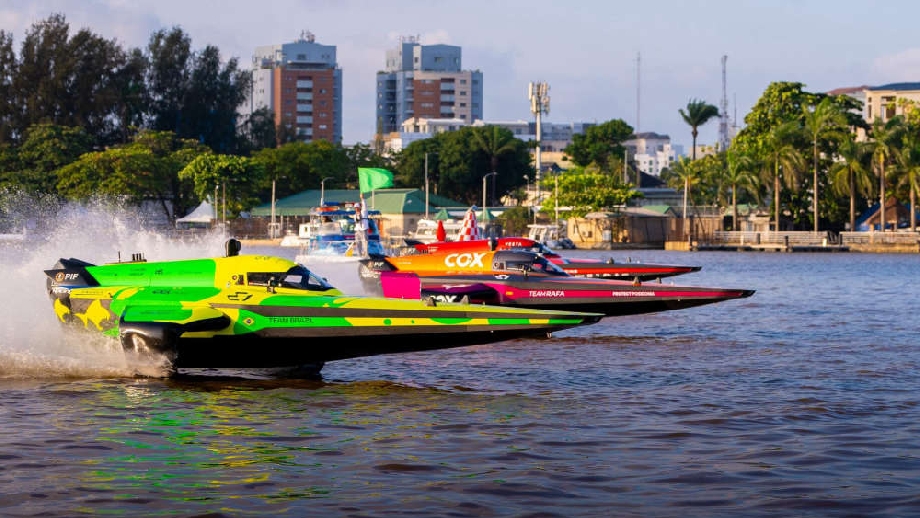Lagos stole the spotlight in 2025 when the E1 Lagos Grand Prix took over the Lagos Lagoon. Sleek electric boats raced across the water, crowds filled the Victoria Island waterfront, and for a moment, the city felt like Monaco. But what happened on the lagoon was more than a race. It was a glimpse of Lagos’ future.
The event showed how much life, energy, and value exist along the city’s coastline. Now the talk has shifted from racing to real estate, as investors begin to see waterfront and waterside properties in Lagos in a whole new light. The E1 Lagos Grand Prix did more than entertain. It changed the way people see Lagos waterfront real estate.
Inside the E1 Lagos Grand Prix and What It Means for Lagos
The E1 Series is often called the Formula 1 of the water. It’s the world’s first all-electric powerboat championship, built around speed, sustainability, and technology. Every race features sleek, battery-powered boats that glide across the water with zero emissions. The idea is simple, make racing exciting while showing what clean energy can do.
In 2025, the series came to Africa for the first time, and Lagos got the spotlight. The E1 Lagos Grand Prix took place on the Victoria Island Lagoon, drawing crowds of locals, tourists, and global media. Big sponsors, celebrities, and investors filled the waterfront, turning it into a weekend of sport, music, and culture.
Lagos was the perfect choice. It’s a city with energy, ambition, and a coastline full of potential. Hosting E1 was more than a race; it was a statement that Lagos belongs among global waterfront destinations like Monaco, Venice, and Miami.
The Economic and Tourism Boost from the E1 Lagos Grand Prix
The E1 Lagos Grand Prix brought more than boats to the lagoon. It brought money, people, and attention. During the event weekend, the city saw a sharp rise in spending that added over $100 million to the local economy. Hotels across Victoria Island, Ikoyi, and Lekki were fully booked. Short-let apartments that usually sit half-empty were filled days before the race even started.
Tourism also got a big lift. Around 10,000 to 15,000 visitors came into the city for the race, including athletes, media teams, and fans from across Africa and beyond. Restaurants, bars, and local vendors saw a rush in sales, while boat operators, event staff, and logistics providers gained new jobs and contracts.
Hotel data showed that occupancy rates jumped from an average of 68% to over 95% during race week. Average daily room rates (ADR) in Victoria Island rose from about ₦95,000 to ₦150,000, while short-let prices climbed 20% to 30% in nearby neighborhoods. Even smaller guesthouses and Airbnb hosts in Lekki Phase 1 reported record bookings.
Beyond the numbers, the E1 Lagos GP gave Lagos priceless media exposure. Global coverage from CNN, Reuters, and Sky Sports put the city on the same level as other waterfront hosts like Monaco and Miami. The buzz caught the eye of diaspora investors, who began looking again at Lagos waterfront real estate as a long-term play. The race didn’t just fill hotels; it reignited confidence in the city’s potential.
How the E1 Lagos GP Sparked New Demand for Waterfront Properties in Lagos
The energy from the E1 Lagos Grand Prix didn’t fade when the boats left the water. It flowed into the property market. The event showed how much potential sits along the city’s coastline and gave investors a new reason to look closer at waterfront and waterside properties in Lagos.
Victoria Island
As the main host venue, Victoria Island got the biggest spotlight. The race put its lagoon views on global display and reminded everyone how central this area is to Lagos’ identity. Since then, more high-end buyers have been asking about waterfront apartments, and developers are exploring new mixed-use projects that combine residential, retail, and leisure spaces along the water. Demand for short-lets here has stayed strong even months after the race.
Ikoyi
Right next to Victoria Island, Ikoyi gained from proximity and prestige. The area’s calm waterways and skyline views now feel even more exclusive. Agents report growing interest in lagoon-view apartments and high-rise towers that take full advantage of the scenery. Some older waterfront plots are being repositioned for modern developments that match the new global attention Lagos is getting.
Lekki (Phase 1)
Lekki Phase 1 was already booming before the E1 Lagos GP, but the event added more fuel. Its coastal layout and easy access to Victoria Island make it one of the most talked-about investment zones in the city. The “waterfront lifestyle” angle now features heavily in property marketing, and prices have climbed as infrastructure and leisure projects gain new visibility.
Across all these neighborhoods, the race created something Lagos has needed for years: a new narrative for its waterfront. One that connects culture, innovation, and real estate into a single vision of what modern Lagos living can look like.
Sustainability and the Blue Economy Vision for Lagos
Lagos isn’t just chasing headlines with the E1 Grand Prix. The city is shaping a long-term plan called the Blue Economy, meant to turn its waterways into centers for growth, clean energy, and urban renewal.
The E1 race fits right into that plan. Every boat in the series runs fully on electric power, showing how water transport can evolve without harming the environment. It proved that Lagos can lead Africa in clean innovation while still creating jobs and excitement.
Another focus is cleaner waterways. With new cleanup efforts and better water transport, areas around the lagoon are starting to look more attractive for residents, tourists, and investors. Both the government and developers now see the waterfront as more than just land. It is a shared space that can drive tourism and boost property value.
Coastal renewal is happening too. New projects are blending marinas, walkways, and leisure spaces with residential and commercial zones. These places are giving Lagos a fresher identity and adding value to the land.
This shift is changing how people see waterfront property. Buyers now care about sustainability, from solar systems to eco-friendly designs. Homes near clean, active water zones are becoming status symbols for a new kind of luxury in Lagos.
What the E1 Lagos Grand Prix Means for Real Estate Investors
If the E1 Lagos Grand Prix becomes a yearly event, the city could see a steady rise in global attention and investor confidence. Each edition will bring new visitors, sponsors, and developers who want to be part of Lagos’ growing waterfront story. That kind of visibility often leads to real value growth.
Property analysts already expect waterfront areas like Victoria Island, Ikoyi, and Lekki to see steady appreciation of about 5 to 10 percent yearly, as long as infrastructure keeps improving. Short-let operators and hotels will also benefit from recurring spikes in demand during race season, with occupancy and rates rising each time the city hosts major events.
The long-term potential is even bigger. If Lagos continues to position its lagoon as a center for global sports, entertainment, and clean technology, the waterfront could become one of Africa’s most desirable real estate zones.
Still, challenges remain. Access roads need upgrades, flooding is a real issue, and parts of the lagoon need better maintenance before large-scale growth can happen. Investors are watching closely because solving these problems will decide how much of the current excitement turns into real value.
Overall, the outlook is strong. The E1 race has done more than attract crowds. It has started a new way of thinking about how Lagos connects with its water, and that mindset could reshape the city’s future.
Conclusion
The E1 Lagos Grand Prix was more than a race. It was a statement about where Lagos is headed and how its future is tied to the water. The city didn’t just host a sporting event. It showed the world that its waterfront can compete with global destinations while driving real estate growth at home.
For developers, it’s a signal that waterfront projects are no longer just luxury plays but smart, long-term investments. For investors, it’s proof that Lagos is ready for a new chapter in modern, sustainable living. And for residents, it’s a glimpse of a cleaner, more connected city built around the beauty of its lagoon.
The event proved something simple yet powerful. When Lagos looks toward its water, the world looks back.
Looking to invest in Lagos’ next waterfront opportunity? Explore our listings in Victoria Island, Ikoyi, and Lekki, curated for investors who want to be part of the city’s next wave of growth.



